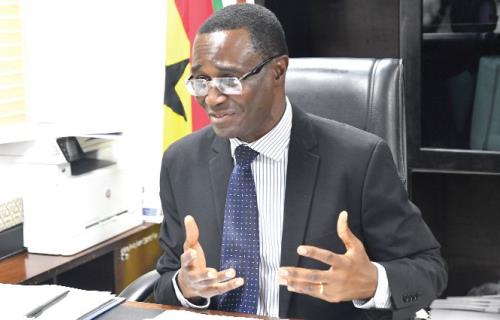Commissioner-General of the Ghana Revenue Authority (GRA), Reverend Ammishaddai Owusu-Amoah, has revealed the main reason behind the statutory body’s cashless drive in the payment of taxes by individuals and businesses.
Speaking in an interview monitored by norvanreports, the Commissioner-General averred the GRA’s cashless drive is to allow the tax body focus on its core mandate of properly assessing and auditing the various taxpayers in the country.
According to him, the receipt of cash for payment of taxes can be better managed by the banks that are trained to handle cash, hence the policy to go cashless and allow banks manage cash paid as taxes.
“The main reason for the cashless policy is to leave cash receipts to banks who are in a better position to take them and manage them while the GRA focus on its core function which is to audit and assess individuals and businesses that pay taxes,” the Commissioner-General asserted.
The GRA’s cashless drive, which will see the tax collection body turn away any cash payments at any of its offices fully commences today, July 1, 2021.
The Authority has been working towards a full end to end digital tax process where taxpayers can file and pay their taxes from any part of the world at any time.
As part of the GRA’s digitalization drive, domestic taxpayers were expected to from May 1, 2021 pay their taxes using the Ghana.gov platform and at any of the twenty-two (22) designated banks by the authority.
A month later, that is from June 1, 2021, all cheques to the GRA were to be paid at the banks.
From today however, the cashless drive of the GRA is fully enforced as the Authority will no longer be receiving cash at its various offices.
The GRA has said that its cashless drive policy is geared towards improving the ease of doing business between the GRA and its customers as well as improving voluntary compliance.








